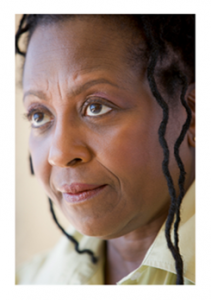If we considered life’s ordinary hurts as potentially traumatic, would that lead us to greater kindness, or at least less judgment of others?
 The bumps and bruises of our everyday lives don’t stack up to the devastating losses that we typically think of as traumatic: death of a loved one, illness, violence, war, natural disaster. This isn’t intended to be an exhaustive list, and nor is this a game of comparisons.
The bumps and bruises of our everyday lives don’t stack up to the devastating losses that we typically think of as traumatic: death of a loved one, illness, violence, war, natural disaster. This isn’t intended to be an exhaustive list, and nor is this a game of comparisons.
Yet we have an odd and contradictory tendency to both sensationalize and downplay our ordinary hurts: non-violent bullying that goes no further than name-calling; a pattern of disappointments in love; the quasi-civil divorce; the fight with a friend; friction with our teens and adult children.
We’re to suck up our hurts and transform them into lessons. But we’re not to dwell on the lingering effects, or for that matter to admit that there may indeed be some.
Touches of Trauma in Every Day?
Should we dramatize every disappointment? Allow anxiety to keep us from leaving the house?
That’s hardly what I’m advocating. But life’s challenges have their way of accumulating and for some, they may carry the impact of or potential for trauma, or something like it.
In “The Trauma of Being Alive,” psychiatrist and author Mark Epstein writes in The New York Times:
An undercurrent of trauma runs through ordinary life, shot through as it is with the poignancy of impermanence…
… If we are not suffering from post-traumatic stress disorder, we are suffering from pre-traumatic stress disorder… There is no way to be alive without being conscious of the potential for disaster… Our world is unstable and unpredictable, and operates, to a great degree and despite incredible scientific advancement, outside our ability to control it.
“Conscious of the potential for disaster…” That phrase hits home for me, and I feel somewhat less apt to scold myself for my own anxiety, knowing the reasons I lose myself in worry from time to time.
Grief: No Formulaic Healing After All?
 Using examples from his 88-year-old mother’s life, largely referring to his father’s death some four years ago and his mother’s grieving process, Dr. Epstein elaborates on the importance of acknowledging suffering rather than trying to shelve it.
Using examples from his 88-year-old mother’s life, largely referring to his father’s death some four years ago and his mother’s grieving process, Dr. Epstein elaborates on the importance of acknowledging suffering rather than trying to shelve it.
I ask myself how we manage this – to express our grief – when our “get over it” society not only demands we heal in a specified time frame, but that we reach for the silver lining following every major or minor disaster.
What if we were to recognize that a loss which is transformational to one person may be permanently devastating to another? That one may seem to “move on” in a year, but another is irrevocably changed and carries anger or fear throughout the rest of his or her life?
What if we recognized in ourselves that wounds are “normal?”
Healing From Trauma
Dr. Epstein continues:
Grief is not the same for everyone… The closest one can find to a consensus about it among today’s therapists is the conviction that the healthiest way to deal with trauma is to lean into it… The reflexive rush to normal is counterproductive…
What if we accept that by the time most of us have reached adulthood, we’ve been through something ordinary – or extraordinary – that has bruised if not broken us – or some part of our belief system? Yet to break in one aspect of self does not mean we are “broken.” It may mean that the fissures run deep, and we won’t pick up the pieces in the way society at large prescribes that we should. Or in a timeframe that suits our peers or pop culture gurus..
 Naturally, most of us take our minor heartbreaks and disappointments, our less than ideal childhoods, and we do learn from them – how to trust or be less naive, how to parent our children differently than we were parented.
Naturally, most of us take our minor heartbreaks and disappointments, our less than ideal childhoods, and we do learn from them – how to trust or be less naive, how to parent our children differently than we were parented.
But if we are reeling from our own series of ordinary hurts, how do we drum up a way to heal – precisely because they are ordinary, and we’re supposed to let them go as if nothing ever occurred?
If we’re aware of those around us who have survived their own onslaught of “ordinary hurts” – lost jobs, periodic illnesses, problems with family members, a series of professional disappointments – how do we respond? How best can we relate?
Kindness? Awareness? Straight Talk?
What if we were to check in periodically, without the expectation that anxiety or distress or trauma has evaporated? Without judging the resolve (or bravery or worth) of ourselves or others by the degree that pain or grieving appears to be abating?
What if we were to allow each other to talk about how we feel, without sensing that to do so will be considered excessive?
Sure, we search for lessons, but every loss needn’t be fodder for the Lesson Mill (or memoir) any more than it should be swept under the rug. Dr. Epstein reminds us that we need to face our emotional scars if we’re to deal with them.
And I return to my starting premise: What if we were kinder to each other and ourselves, rather than judgmental?
You May Also Enjoy
This made me think about a friend of mine in the 90’s. She was actively grieving the death of “Maw Maw”. We were new friends but fast friends. She talked about Maw Maw constantly and how her life changed when Maw Maw died. Maw Maw had practically raised her. Finally after about 6 months of talking about how much she missed Maw Maw, I asked her, “When exactly did Maw Maw die?” She answered, “10 years ago.” I was so annoyed that I had spent all of this emotional energy on a death that occurred 10 years ago yet she was still very actively grieving. I think some people take hits, big or little, harder than others. Some need to be wrapped in bubble wrap to manage even little hits. I may need some bubble wrap myself.
That’s a great example, Cuckoo Momma. You have to wonder if she had nowhere to go with those feelings years earlier, if all painful events were similarly distressful, or of this one was somehow insurmountable. But that emotional energy you expended listening (which I might loosely call kindness), did it help her in some measure?
This op-ed caught my attention this morning too. As I’ve gotten older, I have tried to be kinder, less judgmental of others — and of myself as well. In fact I think being a bit gentler with ourselves helps us do the same for others. I’m not always successful, but at least I’m more aware. I do think it is a question of resiliency. Some of us have more of it than others.
Interesting concept, D.A. I’m of the thought that acknowledging and ‘grieving’ over every tiny hurt or loss creates weakness. Sometimes we just do have to get over it. I’m speaking of the daily, more trivial matters though. I do agree though that more love and kindness and less judgment would make for a better world! Thanks for another thoughtful post.
Yes, I could probably be kinder to myself and to others at times, but I am very much a ‘stiff upper lip’ person. And whilst reading your article, several acquaintances popped into my mind who seemed to get a positive charge out of bringing others down by playing on their sympathies. Like the commenter up thread I was reminded of someone, and I finally gave up the relationship altogether. There comes a time to move on. It is not healthy to remain stuck in past tragedies and involve others in them.
I hear what you’re saying, Cornelia. And likewise, the commenter you reference. There are distinctions I could have made better between the so-called little things (car trouble, a leaky roof, a fight with your best friend) – that may add up both emotionally and financially – and those that really knock us down (losing a job, a breakup, an illness). Perhaps it’s the degree to which others expect us to move beyond these everyday life inconveniences, without their knowing how many there have been, how much they’ve taken out of us, and the fear that they will continue to come at us rapid-fire.
Perhaps one “major” life event followed by a dozen inconveniences puts one person over the edge, but the very same incidents would strengthen the resolve of another to lift that chin up (and stiffen the lip) – and keep going.
My real point is to recognize the differences in how we deal with life’s stressors. I believe that was the point of the article referenced, and he did a much better job than I of saying as much!
I couldn’t agree more that it’s a drag drag drag when you’re on the receiving (or “supporting”) end of someone who relives the same event over and over for years. That way of bringing everyone else down that you mention. We may choose to distance ourselves from it, understandably.
I know a woman who was sexually molested as a child but shows no signs of psychological trauma. I know a man who can’t cope with everyday struggles and is stressed out all the time…to the extent that it impacts his health. I know another man who was hurt by his wife and it’s impacting their relationship even though she’s jumped through hoops to make amends. What’s the saying? We all need to be kind to everyone we meet because everyone is fighting some sort of battle. I think that’s true. We all “deal” differently.
BLW I know this does not fly with most but I like the Buddhist approach on this, where in fact everything is an experience with good and bad, to learn from. The get over it mentality seems damaging as people bury emotions which tend to come out later or accumulate. Further people may think they are getting over it but express their emotions in a manner they do not recognize, e.g. taking work stress out on family, friends, waiter, etc. I think everyone deals with stress differently and we can try to be kinder, but people also need to be reflective and learn what they can do for themselves.